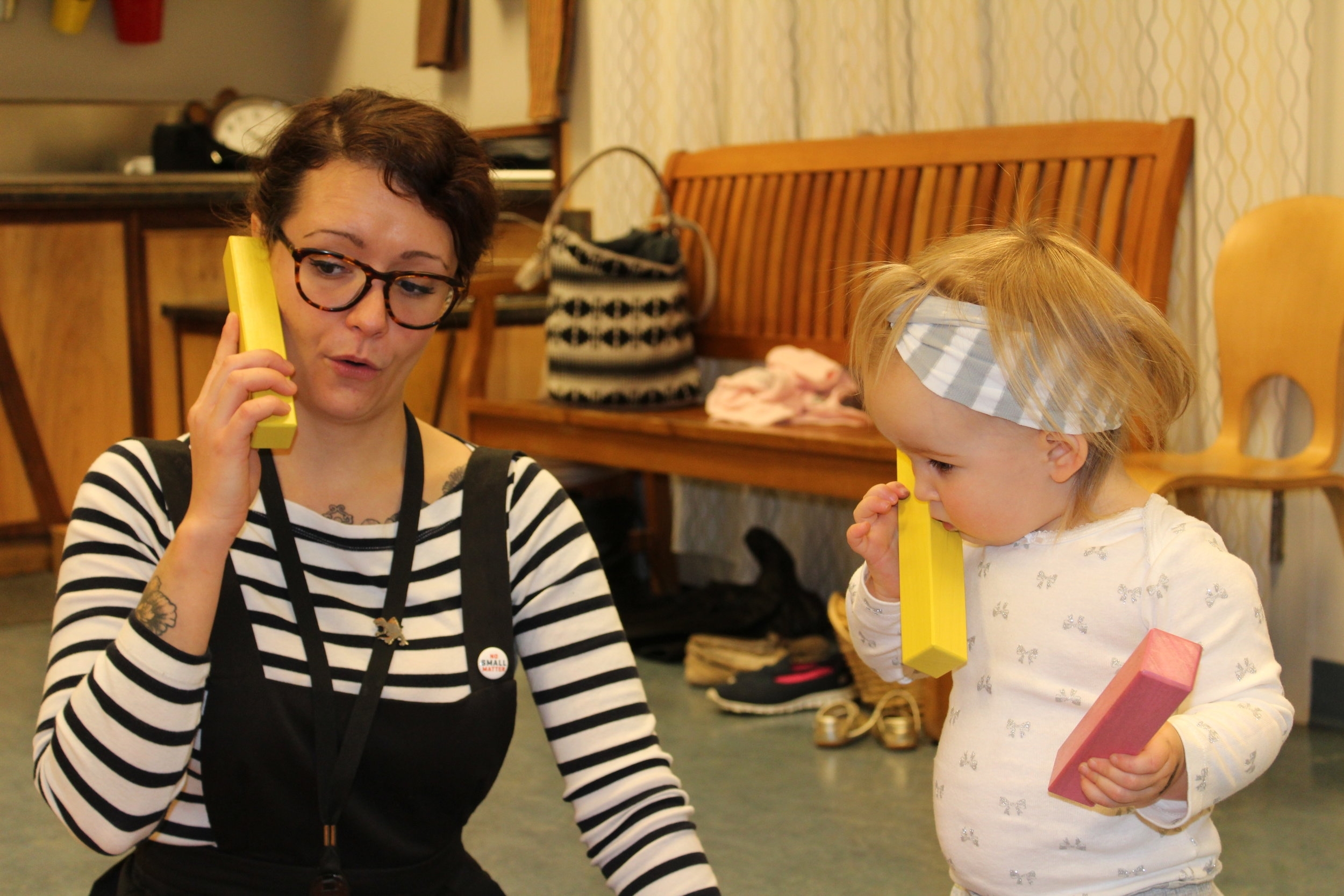An interview with Beth Suskind, Co-Director and Director, Innovation and Social Marketing for Thirty Million Words and Project ASPIRE.
Giannini: What inspired Thirty Million Words (TMW)?
Beth: TMW is Dana’s brain child. (Dana Suskind, Director and Principal Director of TMW and Project ASPIRE) About 11 years ago when Dana started the Pediatric Cochlear Implant Program at the University of Chicago she began noticing in her practice that children who were implanted had the same potential for a positive outcome, yet they were coming back after implantation with varying degrees of advancement. She began noticing those differences almost always fell [along] social economic lines. She was implanting children from lower, middle, and upper income households and she was noticing that the children from lower income households were just not fairing as well. And that motivated her to dig deeper.
It is a testament to Dana. Although she was already engaged in other studies, she actively looked for a reason why this was happening. This included auditing classes in her spare time, which was next to none. It was there that she first heard of the idea of word intake and the [deficiencies] of lower income children compared to their middle and upper counterparts. That motivated her to create Project ASPIRE.
Giannini: What is Project ASPIRE?
Beth: It is a project created for children who have hearing loss. As we were working on Project ASPIRE Dana noticed what she was seeing in the hearing loss population was similar to that of the typically developing population. So Project Aspire gave birth to TMW.
Giannini: What is TMW working on now?
Beth: Under TMW we [launched] a small study in 2010. The results were promising. It was able to get enough interest which lead to the generous people at PNC to continue the longitude study. We are following the children from about 15 months to kindergarten entry and our hope is that we can effect outcomes and school readiness.
Giannini: What is the best way to inform everyone about the power of words?
Beth: What we are doing, and what many other people are doing, [is] taking a wraparound approach. We are looking at our work on three different tiers. The individual level which is an example of one-on-one in the home with home visiting. Community level is next. It is where the museum and library exhibition and TMW partnership comes in. Then we are in birthing centers and pediatric centers. We want a high visibility campaign where information on the importance of talking with your children can be seen on trains and busses. This takes time but it what we are working for. We really want people to intersect it in their travels.
Giannini: Is there any takeaways you’ve had over the last seven years?
Beth: I am a mom. I was a mom before I started working here. I’ve always had an affinity for children. At a dinner party I would much rather be at the kids table. That’s just how I am wired. I’ve always been this way. I feel like I am a really good mom. I read to my kids, I sang to my kids, I talked to them. I did all the things you are supposed to do when they are wee little ones. Still when I started working here it was day after day of revolution on how minds develop and what our role as parents and care givers and as a community can be in the development of a child. I continue to be in awe of it and the importance of it. It’s this thing that everyone has to know. Almost as if you shouldn’t be allowed to leave the hospital with a child until someone tells you, “talk to this child because it give your child a happier more successful life.” I just feel like that should be a given. Just as someone checks to make sure you are plugging the car seat in properly, they should be making sure you are aware of the importance of talking and interacting with your child.
I feel like I was more prepared than most when I left the hospital but I had no idea that there was so much science to support that. The more I talk and interact with my child the stronger, the more intellectual, cognitive, social emotional, and the list goes on and on, he or she will have is pretty darn powerful and everyone should have that information.
Giannini: Especially when it is free.


